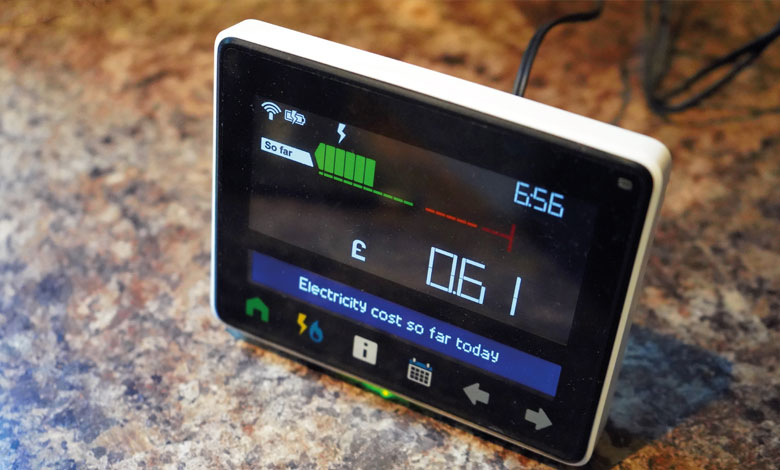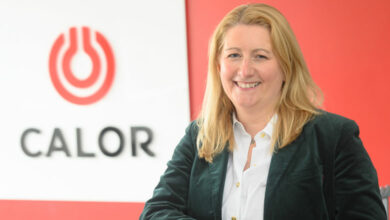Smart meter rollout plan to be finalised in 2024

The Department for the Economy intends to appoint a contractor to develop and finalise a plan for the design and rollout of smart meters by the end of 2024.
The details were included in the Energy Strategy – Path to Net Zero Energy 2024 Action Plan, which also indicated that a final Smart Systems Flexibility Plan will be published in the same timeframe.
Consultation on design considerations for a Northern Ireland Smart Systems and Flexibility Plan (SSFP) closed in April 2024, with the Department stressing that the SSFP will not be a policy document in itself but will set out a roadmap for developing policy.
It is expected that the SFFP will largely follow the structure of the Great Britain Smart Systems and Flexibility Plan 2021, with a Northern Ireland focus.
The Department’s ongoing work to develop a plan for the implementation of electricity smart meters and systems has been informed by a cost benefit analysis published in June 2023 which suggests that smart meter deployment “can offer a positive net present value to the consumer, network companies, retailers, and wider society”.
The analysis was mandated by the EU’s 2019 Electricity Directive which seeks the introduction of smart meters across the EU and the UK’s Net Zero Strategy: Build Back Greener. The Department for the Economy opted to extend the legislative requirement for a cost benefit analysis beyond electricity smart meters to include gas smart meters.
In summary, the cost benefit analysis finds that all three scenarios considered in relation to electricity: 1) a fast rollout; 2) a phased approach; and 3) a hybrid approach, are viable in Northern Ireland and present a positive value for money outcome pending appropriate planning, specification, procurement, and delivery phases. An active rollout (scenario 1) suggested the highest value for money, but also required the largest capex investment.
The analysis concluded: “Whilst scenario 1 at a cost benefit analysis level presents the best value for money, future analysis should delve into the practicality of this type of deployment further. Considerations for nonquantitative market drivers, resourcing (network-side and government-side), and what is right for Northern Ireland should be made.”
In relation to gas, under a similar three scenarios, only a fast active roll-out indicated a material value for money. However, the analysis stresses the need for consideration to be given to the ability of pay-as-you-go meters to support smart services, and also suggests consideration of integration between the Gas Smart Service programme and an Electricity Smart Service programme.
Setting out some of the key considerations now facing the Department, the analysis further concludes that a successful smart service programme “will require significant management resource and capability to develop the programme and agree a funding, through to the delivery of key activities including smart service design, meter and associated technology procurement and through to roll out and the provision of smart tariffs”.
“Consumers are the largest beneficiary of a smart service programme and consumer behaviour is the key driver to benefits overall.”
It adds: “Work to ensure alignment between all parties in order to bring smart tariffs to market and to protect consumers and their data from security and cyber threats are all essential. Consumers are the largest beneficiary of a smart service programme and consumer behaviour is the key driver to benefits overall. It is therefore critically important that an engagement campaign that informs, encourages, and educates consumers of all types and needs is developed.”
On 30 June 2023, the Department announced its intention to develop a plan for the implementation of electricity smart meters and systems, but will not proceed with smart gas meters.
SSFP
The aspects of the SSFP design consultation are wide-ranging and pose a variety of questions, answers to which will be considered by the Department prior to publication of the final plan.
Some of the key issues being considered are consideration of whether a future systems operator (FSO), or similar organisation/arrangements are appropriate for Northern Ireland, as well as a TSO/DSO cooperation review to be developed by the Department and the Utility Regulator (UR), which will look at the state of current TSO and DSO cooperation, and whether further changes are needed.
In addition, the Department and the Utility Regulator are set to consider the need to develop a consumer protection and/or licensing regime for aggregation, data and flexibility service providers, and any subsequent legislation.
Other notable outputs include:
• the Department working with the UR, SONI, and NIE Networks to deliver the SOs’ mandates to digitalise their networks in accordance with the Electricity Directive requirements;
• the Department working with the UR to consider the need for a licensing regime, and code of practice for aggregators (either suppliers or third-party aggregators);
• establishing a working group to consider Northern Ireland requirements in terms of energy and network cybersecurity;
• a proposal to conduct a review with the UR on the appropriate enduring regime for licensing electricity storage;
• an analysis of the costs and benefits to Northern Ireland of different levels of interconnection in light of the likely changes in generation and demand in Northern Ireland and also in neighbouring jurisdictions; and
• development of a policy on digitalisation of the energy system in Northern Ireland.
The above list is not exhaustive, and all feedback is set to be assessed by a steering group consisting of the Department for the Economy and the Utility Regulator, which will set the scope of the SSFP.
The steering group will retain policy responsibility and make recommendations for final proposals to the Minister for the Economy or DfE senior management. Development of the SSFP will be overseen by the steering group and supported by a working group.





